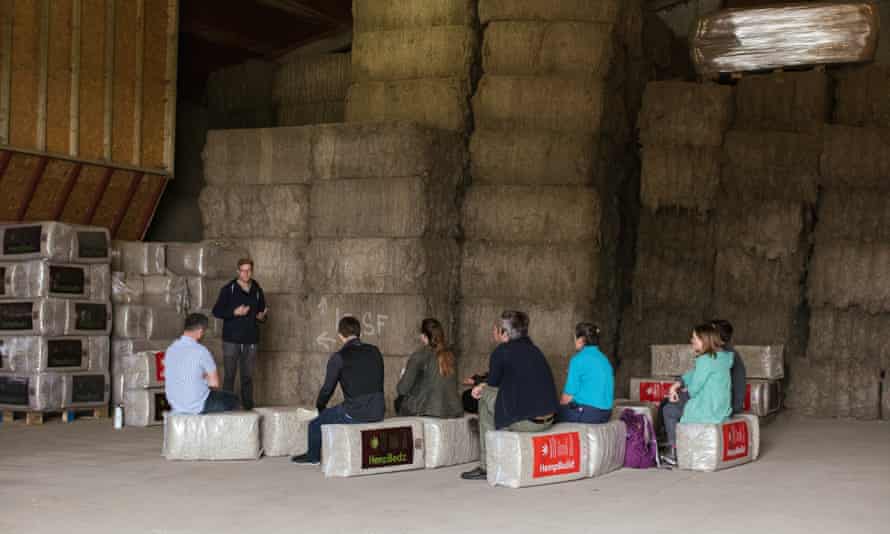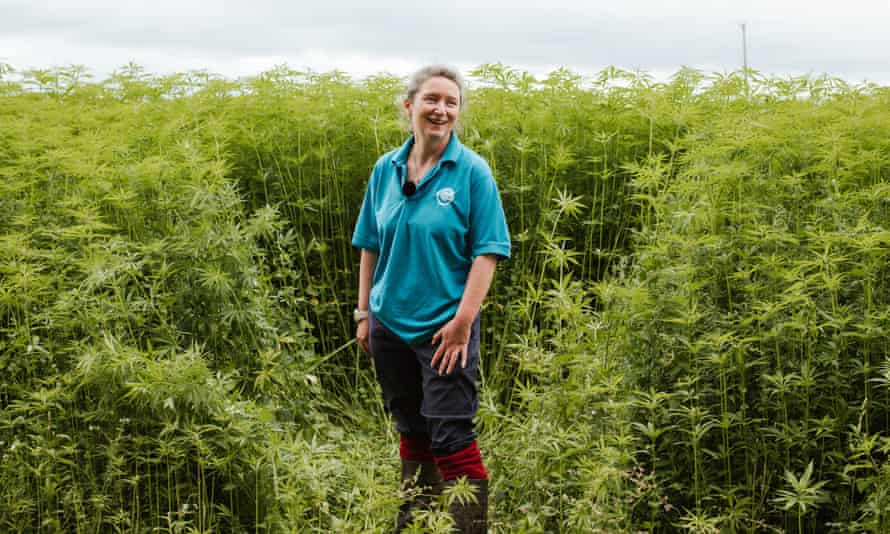WeedLife News Network
Hemp milk claims to be the greenest yet – but is it any good?

’m sitting in my kitchen, about to try my first sip of a milk that is vegan, sequesters carbon and increases biodiversity. Dairy milk has a high carbon footprint. Soy is linked to deforestation, almond to high water use. But how does the new kid on the scene – hemp seed milk – measure up for taste?
An Innovative Farmers project coordinated by the Soil Association is investigating how industrial hemp production could aid the transition to a low-carbon economy. In collaboration with scientists at Cranfield University and the British Hemp Alliance, research will quantify the environmental benefits of growing hemp. In farm trials that launched last month, five farmers are helping to investigate this plant’s ability to sequester or store carbon, improve soil health and increase biodiversity.
“Hemp could be a very valuable tool, but the UK is currently behind the curve internationally and there’s a distinct lack of data,” says Nathaniel Loxley, the Innovative Farmers project coordinator and co-founder of the British Hemp Alliance.
In theory, hemp has many potential benefits as a crop from an environmental perspective. It does not need pesticide chemicals or much water input, and hemp roots grow up to 3 metres deep, so they could help improve soil structure and nutrient levels, potentially leading to greater yields in follow-on crops.

“From a nutritional perspective, hemp seed milk ticks all the boxes. It’s low in saturated fats, there’s no sugar or cholesterol, it’s high in polyunsaturated fatty acids, and provides a really strong source of omega 3,” says Ben Cooper, Good Hemp’s brand manager. Cooper explains that whole hempseed hearts are processed “with some wizardry” to produce a cream, rather than an oil like other plant-based dairy products, to make this milk.
Good Hemp is the UK’s first and biggest hemp milk producer, but because only 20 UK farmers are currently licensed to grow hemp, it currently sources most of its seed from Europe and Canada. “We’d love to source all our seed from the UK. That’s our ambition once more farmers increase hemp as a crop, either commercially or as a rotational crop.”
But before breaking through as a mainstream vegan milk product, negative preconceptions need to be broken. “People think of marijuana but it’s like comparing a tiger to a house cat. They’re from the same family but different plants,” says Cooper. Hemp doesn’t contain high levels of tetrahydrocannabinol (THC), the psychoactive substance found in cannabis, but it is still classified as a controlled drug in the UK, so farmers must apply to the Home Office for a licence before growing it.
Yet, hemp is nothing new. It has been used to produce rope, nets and sails since the 16th century. Today, it’s used to make a building material known as hempcrete, animal bedding and fire briquettes, textiles and paper. Some varieties are best suited for fibres, others for seeds.
Loxley, who grows organic hemp in Sussex is excited by the scope of this farmer-led trial. “We hope that by understanding hemp’s benefits better and collecting evidence on it, we can pave the way for more UK growers.”
For Dr Lynda Deeks, soil scientist at Cranfield University, this trial is just the start of the journey. She recently trained the five farmers to assess soil health, see how easily it breaks down, how aerated it is, how many different earthworms are present – the more the merrier – and whether it smells sweet, a sign it is well-balanced. They will also measure how quickly water filters down into the soil and count the birds, butterflies and insects present on the crop throughout the season.

Once farmers can supply the goods at scale, demand could skyrocket. One major oil seed pressing company has already expressed interest in using hemp seeds and long term, there is huge scope for hemp seed milk production to play a bigger role in the transition to a more regenerative landscape. Loxley adds: “Hemp could be a real catalyst for change.”
And the taste? I take a sip and roll it around my mouth; the flavour is light and nutty, not overly sweet with a hint of sesame or perhaps pine nuts. It is thinner than semi-skimmed. It has taken me a while to get used to oat milk so it tastes a little strange on first tasting but it is definitely something I could get used to.
Copyright
© 420 Intel
When you subscribe to the blog, we will send you an e-mail when there are new updates on the site so you wouldn't miss them.

